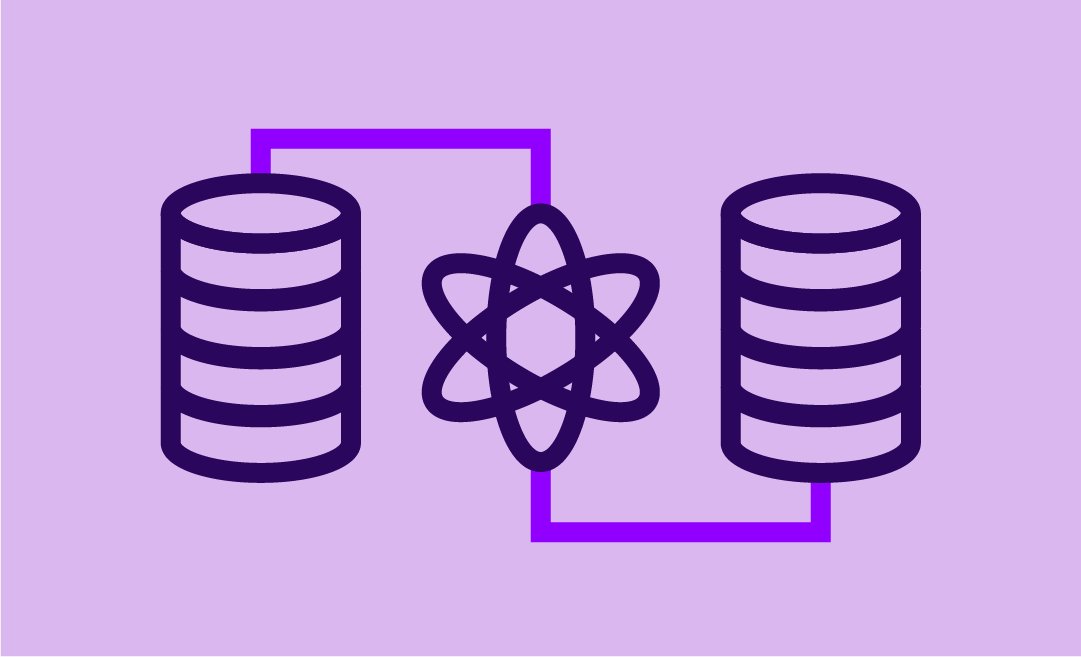Skills Required for a Data Scientist: Key Competencies for Success
The author of this article is tech expert Pieter Murphy.

Preparing to launch or transition your career to data science is an exciting moment. If you want to ensure your success, you’ll need to know more than the answer to “What is data science?” and showcase qualifications beyond your education. Understanding the IT language of data analysts and honing the right field-specific skills is a must. That way, you can make sure that you have what companies look for when making hiring decisions.
While there is, at times, some debate about which capabilities are the best data scientist skills to master, specific competencies are usually the key to success. Here is an overview of the skills required for data science.
Technical Skills Required for Data Scientists
Whether you’re an aspiring data scientist or analyst or an experienced one, specific technical skills are essential. Also referred to as hard skills, these capabilities ensure you can handle the position’s associated duties and leverage related technology.
Here’s a look at the most valued data science technical skills.
Programming
When it comes to skills for a data scientist, programming is essential. Typically, you need to be effective in more than one programming language. Instead, there are several that are highly relevant in the field.
Which programming languages are necessary can vary depending on job level (such as entry-level, junior level, or senior level) or job type. However, an effective data science programmer usually has a solid grasp of some or all of the following:
Python
R
SQL
Java
JavaScript
C/C++
MATLAB
Scala
Julia
SAS
Knowledge of SAS and Other Analytical Tools
As a data science professional, developing an understanding of SAS software and other analytics tools is critical. Skills in this arena help you extract information from the data set (or sets) you’re leveraging.
Some of the most widely used analytics tools include Hadoop, Spark, Hive, and Pig. However, there are many others available, so it’s wise to explore an array of options, particularly since each employer may favor different options.
Unstructured Data
When it comes to providing an employer with value, one of the skills required for a data scientist is the ability to work with unstructured data. Unstructured data includes a variety of data types, including images, videos, audio recordings, and other information that’s not easily structured into tables. Since companies want to leverage as many informational sources as possible, resulting in large datasets featuring mixed data types, they strongly favor data scientists with unstructured data experience.
Web Scraping
Another useful skill to master that can boost your career is web scraping. Web scraping involves processes that extract data from websites, ensuring any information used is fresher than it would be if older resources were used.
Machine Learning and Deep Learning
Machine learning (ML) and deep learning (DL) are both skills needed for a data scientist. Understanding how machine learning algorithms work, knowledge of machine learning models, and familiarity with how deep learning works all provide value. Often, these capabilities make working with large data sets easier, as they can leverage various algorithms or models to handle the analysis quickly.
For professionals who are new to these areas, there are many data science materials for self-study that can help them build a strong foundation.
Problem-Solving Skills
Problem-solving skills are some of the most sought-after capabilities, as they provide significant value. Problem-solving is the foundation of troubleshooting, ensuring analysts can identify issues in processes and make changes to improve the results. Additionally, problem-solving can assist with conflict resolution, overcoming obstacles during projects, and more.
Statistics and Probability
Some of the critical data scientist skills needed to excel in the field are statistics and probability. Those ensure that professionals understand how randomness can apply to various situations and make navigating uncertainty easier. Plus, statistics and probability can assist with proactive decision-making in an organization. For example, data analysts can predict how different data could perform, allowing them to provide data-driven insights to company leaders.

Mathematics
Mathematics is incredibly important in data science. Statistics and probability rely on math expertise. Additionally, ML and data analysis can involve advanced mathematics in areas like multivariate calculus and linear algebra.
While the ability to do mental math is helpful, professionals who need to use tools to perform calculations can still thrive in the field. What matters most is the ability to work through the equations, so using a calculator or similar tool is acceptable as long as the results are strong.
Database Management
Database management is a vital skill for a data scientist. Structured data is classically stored in databases, and the ability to arrange, edit, read, and process that information effectively is a critical part of a data analyst’s or scientist’s position in most cases. However, the depth of understanding doesn’t have to go as far as a database manager typically would, so keep that in mind.
Cloud Computing
When it comes to important skills that some professionals may overlook, cloud computing can qualify. Many companies use the cloud for backend services and storage, and housing material in the cloud is often a common way the technology is leveraged. Plus, tools or applications data scientists and analysts need to access may be cloud-based. As a result, understanding the basics of cloud computing and computer networking involving the cloud provides companies with value.
It’s important to note that companies may use a variety of platforms to meet their cloud computing needs. Generally, the most widely used are:
Amazon Web Services (AWS)
Google Cloud
Microsoft Azure
By focusing on those above, professionals have the strongest chance of acquiring skills that provide value to the broadest array of companies.
Microsoft Excel
While it may seem rudimentary compared to many other solutions, one of the basic data science skills that is worth acquiring is Microsoft Excel. How Microsoft Excel works is highly similar to a typical database. Plus, you can use SQL statements in Microsoft Excel, which can make it an excellent tool for a beginner looking to deepen their understanding of SQL.
DevOps
Since many companies are increasingly embracing the methodology, knowledge of DevOps can help professionals boost their careers. At a minimum, you need an intellectual understanding of the associated best practices and typical processes. Practicing some of them in a non-DevOps environment can also help hone capabilities. However, experience using DevOps in the workplace is typically best, so go that route if there’s an opportunity to do so.
Data Visualization and Analysis
Data visualization and analysis are both skills for data scientists that are worthwhile to learn. Data visualization involves the creation of a diagram – such as a bar chart, histogram, or pie chart – that makes the shared information more digestible. Often, through visualization, it’s far easier to identify trends and patterns, as well as find outlier data points that may deserve further review and classification.
While there are many visualization tools on the market, gaining familiarity with some of the most widely used is generally best. Solutions worth exploring include:
Tableau
PowerBI
D3.js
Datawrapper
Business Intelligence
When it comes to desired skills for data science professionals, business intelligence is highly sought. Professionals skilled in business intelligence can identify patterns and derive insights that can effectively guide the decision-making process. Essentially, it allows analysts to support company leaders through the sharing of information that’s gathered using their analysis-related capabilities.
Neural Networks
When it comes to data scientist required skills, neural networks can qualify. They’re the foundation of deep learning, which is why experience with neural networks is potentially deemed essential. Ideally, professionals need to understand the various architectures and frameworks, as well as how to design, train, and manage existing neural networks based on different use cases.
Model Deployment
Another one of the most important capabilities to acquire is model deployment. This involves skills related to taking a trained ML model and making it accessible in production environments. Essentially, model deployment ensures that all parties who need access to the model – including those outside of the data science profession – can tap into it. While some companies may have specialists who handle this step, being a data scientist who can manage model deployments effectively makes anyone in the field a more valuable asset.
Big Data
When it comes to the must-have skills of a data scientist, big data is a clear necessity. It involves using massive data sets that are challenging to process when using traditional methods. Instead, they require a specialized approach to make the volume of information manageable.
There are also specific tools and frameworks related to big data that are worth learning. Some examples include:
Apache Storm
Hadoop
Hive
Spark
In many cases, data wrangling skills are also part of the equation. The associated processes help clean up raw data, address outliers, eliminate null values, and ensure the information is formatted correctly prior to analysis.

Non-Technical Skills Required for Data Scientists
Many professionals focus heavily on technical capabilities when preparing to enter or advance in a field. However, non-technical skills – also known as soft skills – are just as critical.
Typically, soft skills are capabilities that you won’t learn through traditional educational means, such as earning a graduate certificate or taking a computer science course. Instead, they are traits and characteristics that a person possesses and hones over time.
Here are the non-technical skills required for data scientists.
Communication Skills
When it comes to core data science skills that aren’t technical, communication skills are the most widely sought. Data science only assists an organization if the insights discovered are presented in ways that make the insights easy to understand by those who will leverage the information. As a result, the ability to share information effectively – both verbally and in writing – impacts your success.
Plus, communication skills affect your ability to navigate a workplace and collaborate as part of a team. Strong verbal and written communication capabilities make engaging with colleagues easier, increasing the odds that group efforts will lead to positive outcomes.
Analytical Mindset
An analytical mindset isn’t just in high demand; it’s an outright must-have. With analytical thinking, data scientists can view information objectively and approach problems strategically. As a result, professionals are less inclined to bias or assumptions, which leads to greater accuracy.
With an analytical mindset, professionals also have an easier time selecting the best tools and solutions for the tasks they need to handle. That allows them to manage their responsibilities more efficiently, providing employers with even more value.
Structured Thinking
In the worlds of statistical analysis and data science, structured thinking is highly valuable. It allows professionals to take complex goals or large-scale projects and break them down into logical pieces. Then, they can build a process that solves the problem or reaches the objective.
Critical Thinking
When it comes to must-have data science and analytics skills, critical thinking easily qualifies. Professionals in this niche need to effectively analyze and evaluate information on their own, allowing them to make sound choices as they shape their approach or unearth insights.
Decision Making
Many professionals in the field of data science spend a significant amount of time working independently. Additionally, they often have a degree of autonomy. Since that’s the case, decision-making is a critical skill to build. It ensures professionals can select suitable paths without a significant amount of direct guidance, which leads to greater efficiency across the team and organization.
Storytelling Skills
One of the often overlooked data science engineer skills that’s worth developing is storytelling skills. Essentially, if a professional can take relatively dry information and make it digestible and engaging, they’re far more effective in their position. That makes learning how to present the insights in a non-technical way that captivates an audience highly valuable to employers.
Curiosity
One thing all data scientists need is a sense of curiosity. Wanting to know the whys and hows that explain the reasoning for something happening keeps you motivated. Plus, curiosity encourages data analysts to explore information from a variety of angles, which can lead to powerful insights that may otherwise be overlooked.
“Out-of-the-Box” Thinking
Another of the key data science job skills is the ability to think outside of the box. In many cases, data sets can tell people far more than they expected. However, they have to ask the right questions or explore it from the proper angle to capture those insights. With out-of-the-box thinking, it’s far easier to consider all of the possibilities, leading analysts down unique roads that can lead to powerful discoveries.
Conclusion
Ultimately, all of the skills for a data science professional above are critical for your career. They reflect the capabilities employers typically seek out when selecting candidates for open positions. As a result, possessing them can effectively lead to a job guarantee, as you’re bringing what organizations want most to the table.

.png)
